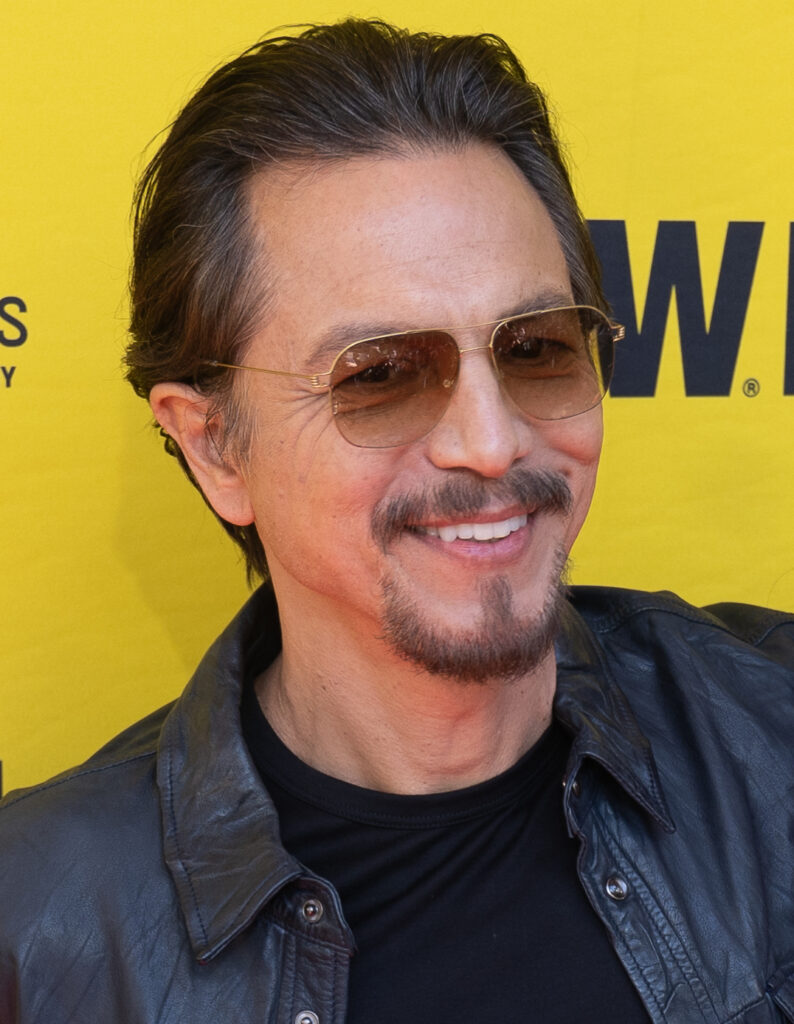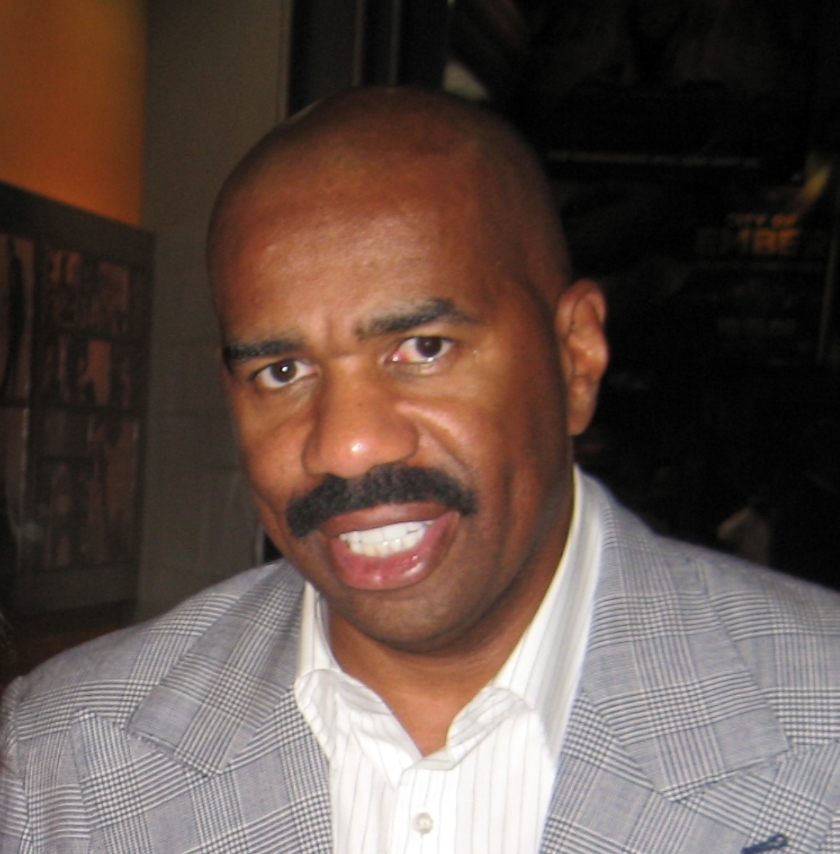
The glitz and glamour of Hollywood often overshadow the strategic decisions that shape an actor’s journey to stardom. Beyond talent and sheer luck, a carefully chosen name can be an invaluable asset, a cornerstone of an actor’s brand. It’s a fascinating aspect of the industry where personal identity often converges with professional aspiration, leading many to shed their birth names for something that resonates more effectively with the silver screen or the discerning eye of a casting director. Such changes are rarely made lightly; they are calculated steps in the high-stakes game of celebrity.
In a world teeming with aspiring performers, standing out requires more than just raw ability. A memorable name can avoid confusion with others already working in the field, fit better on a marquee with maximum impact, or strategically signal a specific persona that an actor wishes to embody. Sometimes, these significant changes are driven by practical necessities, such as union rules that prevent two members from having the same professional name. Other times, they are the result of a deliberate crafting of an identity designed for broader appeal—perhaps an easier-to-pronounce surname, or a less ethnically specific first name, reflecting the often-unspoken realities and biases of different eras in show business.
This deep dive uncovers the compelling stories of actors who went beyond simple nicknames or familial abbreviations, embracing entirely new professional identities—sometimes even legally—at pivotal moments mid-career. We’ll explore how these profound name transformations intersected with critical career breaks, the influential directives of powerful studio systems, unique immigration narratives, and even the subtle but impactful nudges of comic books and pop culture. Ultimately, these new names became utterly inseparable from some of the most iconic performances and enduring legacies in cinematic history. Join us as we explore how a seemingly simple name change can indeed pivotally alter a destiny and pave the way for unparalleled success.

1. **Cary Grant (Born Archibald Alexander Leach)**Arriving in early Hollywood from Bristol, England, Archibald Alexander Leach quickly understood that the studio system had a distinct preference for names that were crisp, memorable, and effortlessly marketable. His birth name, while perhaps possessing a certain historical charm, didn’t quite fit the suave and sophisticated persona that studios aimed to cultivate for their leading men. This pragmatic realization, born from observation and industry feedback, truly sparked one of cinema’s most impactful and successful rebrands.
The pivotal transformation into “Cary Grant” began in earnest when he signed with Paramount Pictures. The studio, renowned for its meticulous cultivation of star personas, collaborated closely with the young actor to forge an image of sophisticated elegance and debonair wit. The name “Cary Grant” was deliberately chosen to encapsulate this very essence, creating an identity that would very quickly become utterly synonymous with Hollywood’s glamorous Golden Age of romantic comedies and thrilling suspense.
This adopted name proved to be nothing short of a masterstroke, aligning flawlessly with the types of roles that would come to define his extraordinary and multifaceted career. From his iconic, rapid-fire performances in witty screwball comedies to his magnetic presence in thrilling suspense films like Alfred Hitchcock’s ‘North by Northwest’ and ‘Notorious’, his new moniker effortlessly fit the urbane and polished image he projected. The sleek, two-syllable stage name wasn’t just audibly pleasing; it became an intrinsic and indelible part of the sophisticated screen presence that audiences universally adored and remembered him for, cementing his status as a truly timeless cinematic icon.

2. **John Wayne (Born Marion Robert Morrison)**Before he became the quintessential American cowboy, an embodiment of rugged individualism and unwavering frontier spirit, he was known as Marion Robert Morrison (and later, Marion Michael Morrison). This given name, while perhaps personally significant, certainly didn’t evoke the steely resolve and pioneering toughness that powerful Fox executives envisioned for their rapidly rising Western star. This was an era where major studios wielded immense influence in shaping public perception, and a name change was often a critical, non-negotiable component of that strategic molding process.
The pivotal transformation into “John Wayne” was a meticulously planned and deliberate initiative undertaken by Fox executives precisely as his early Western persona began to take concrete shape. The new name itself was engineered with great care to project a potent combination of sturdiness, an undeniable all-American appeal, and an inherent, almost mythical connection to the pioneering spirit of the West. It was designed to be impactful, resonant, and instantly recognizable as a powerful symbol of strength, reliability, and moral rectitude—qualities that were absolutely central to the heroic figures he was destined to portray on the silver screen.
Operating under the powerful banner of “John Wayne,” Marion Morrison transcended the mere act of playing characters; he effectively became a cinematic institution, a cultural touchstone representing American fortitude. His carefully chosen new name evolved into a powerful emblem of ruggedness and enduring strength, not only across a vast filmography of iconic Westerns, including the groundbreaking ‘Stagecoach’ and the unforgettably gritty ‘True Grit’, but also in a revered string of powerful war films. This studio-molded name perfectly synchronized with and reinforced the roles that irrevocably transformed him into one of Hollywood’s most enduring and universally beloved figures, a lasting testament to the profound power of a name to shape and ultimately define an unparalleled legacy.

3. **Michael Caine (Born Maurice Joseph Micklewhite Jr.)**For Maurice Joseph Micklewhite Jr., a young actor with considerable talent and an unmistakable charisma, the decision to alter his name was born less from explicit studio diktats and more from a moment of pure, serendipitous inspiration, coupled with an astute understanding of practical career necessities. As he stood on the precipice of a potentially significant career, he keenly recognized the paramount importance of having a professional name that would not only differentiate him from the crowd but also be effortlessly remembered within the vibrant, competitive British film scene and, crucially, in the burgeoning international market.
The illuminating spark for his new professional identity struck while he was gazing at a theater marquee. The title of the classic film ‘The Caine Mutiny’ caught his discerning eye, and in that instant, a flash of insight revealed that the surname “Caine” possessed an undeniable punch, a crisp resonance, and a certain gravitas. When paired with “Michael,” a first name he personally favored for its strong, classic appeal, it collectively created a stage name that was both distinctive and remarkably accessible. While his initial adoption of “Michael Caine” was purely professional, he later took the significant step of making the change legal, pragmatically citing reasons such as smoother passport control during his increasingly international travels and ensuring professional continuity across his rapidly expanding and diverse body of work.
As the newly christened Michael Caine, he embarked on a distinguished career that has been profoundly marked by his remarkable versatility, an incredible acting range, and consistent international success. The leaner, more universally pronounceable name proved to be an invaluable asset as he skillfully navigated the transition from the raw realism of British kitchen-sink dramas to the expansive canvas of global blockbusters. Whether he was charming audiences with his distinctive Cockney wit in ‘Alfie’, delivering a commanding and iconic performance in Christopher Nolan’s ‘The Dark Knight’ trilogy, or offering nuanced and deeply moving portrayals in critically acclaimed films like ‘The Cider House Rules’, his adopted name traveled effortlessly across continents and cultures, facilitating his expansion into an astonishing array of diverse roles.

4. **Ben Kingsley (Born Krishna Pandit Bhanji)**Krishna Pandit Bhanji possessed an undeniable, formidable theatrical talent, which he meticulously honed over years on the esteemed British stage. However, as he contemplated and actively pursued a transition into the world of film, he came face-to-face with an ingrained industry reality that many actors with distinctly ethnic names often encountered: the pervasive issues of typecasting and the challenge of fostering immediate audience familiarity. The core dilemma he faced was how to enable his exceptional acting prowess to truly shine without being unfairly pre-judged, pigeonholed, or limited by his surname, which might inadvertently obscure the breadth of his abilities.
It was with a clear strategic vision that he adopted the professional name “Ben Kingsley” as he made the significant leap from the theatrical stage to the cinematic screen. This was not a whimsical choice; it was a calculated decision specifically aimed at making it considerably easier for casting directors, producers, and the wider film industry to envision and place him in a more expansive and diverse array of roles. This carefully considered shift was a direct reflection of the prevailing industry landscape at the time, where a more universally recognizable and pronounceable name could effectively open doors that might otherwise remain closed due to entrenched preconceived notions or subtle cultural biases. It was fundamentally about constructing a more accessible bridge, allowing audiences to connect with and appreciate the performer’s artistry, unburdened by any initial ethnic labeling.
The chosen name “Ben Kingsley” undeniably preceded, facilitated, and vigorously supported an absolutely acclaimed body of work that has profoundly transcended cultural boundaries and linguistic divides. As Ben Kingsley, he delivered an unforgettable, Oscar-winning performance as the titular character in ‘Gandhi’, a role that indelibly marked his place in cinematic history. He later demonstrated a chilling, unforgettable intensity as the villainous Don Logan in ‘Sexy Beast’, and showcased an unexpected, heartwarming warmth as Monsieur Labisse in ‘Hugo’. His meticulously selected new name genuinely empowered him to effortlessly cross cultural boundaries onscreen, making it considerably simpler for both producers and audiences alike to connect the performer with a remarkably wide assortment of complex, nuanced, and intensely memorable characters. This strategic re-naming not only broadened his horizons but also unequivocally solidified his international status as a global acting force of profound versatility and undeniable gravitas.

5. **Kirk Douglas (Born Issur Danielovitch)**Born Issur Danielovitch (later Issur Danielovitch Demsky), he emerged from a challenging upbringing as the son of Jewish immigrants from Belarus. As he steadfastly pursued an acting career in the fiercely competitive landscape of Hollywood, he inevitably encountered the prevalent attitudes of an era where distinctly ethnic names, particularly those with Eastern European origins, frequently presented significant barriers to entry and limited professional opportunities. The powerful studio systems of the time, driven primarily by commercial marketability, routinely encouraged—and often insisted upon—actors adopting names that were perceived as more “American” or generally more palatable to the diverse, mainstream audience.
To skillfully navigate these formidable industry hurdles and broaden his professional scope, he made the strategic and impactful decision to change his name to “Kirk Douglas.” This choice was far from arbitrary; every syllable was carefully considered. “Kirk” offered a strong, masculine, and confident sound, imbued with a sense of dynamism. “Douglas” provided a familiar, sturdy, and distinctly Anglo-sounding surname, adding a sense of established gravitas. The potent combination was meticulously designed to be both commercially marketable and instantly memorable, effectively creating a stage name that powerfully conveyed strength, integrity, and a commanding presence—qualities perfectly suited for the heroic, often intense, and deeply dramatic roles he was destined to play.
As the formidable Kirk Douglas, his career skyrocketed, propelling him to the very forefront of Hollywood’s celebrated studio era. He quickly established himself as an imposing and unforgettable screen presence, headlining a series of grand, epic films and powerful, psychologically complex dramas. These included his iconic portrayal of the rebellious gladiator in ‘Spartacus’, a role that cemented his legend, and his deeply moving performance in Stanley Kubrick’s anti-war masterpiece ‘Paths of Glory’. His carefully chosen new name aligned impeccably with these heroic, often morally complex, and physically demanding roles, providing him with the essential traction required to not only survive but to thrive within Hollywood’s competitive casting practices, ultimately establishing himself as one of the era’s most formidable, enduring, and critically acclaimed leading men.

6. **Tony Curtis (Born Bernard Schwartz)**Bernard Schwartz, a captivating talent born to Hungarian Jewish immigrants, arrived in Hollywood possessing an unmistakable charm, striking good looks, and an undeniable screen presence that promised stardom. However, much like a multitude of his contemporaries who bore non-Anglo-sounding names, he quickly encountered the prevailing realities of a marketplace that often conspicuously favored names perceived as more “mainstream,” more universally accessible, or simply easier for a mass audience to readily remember and embrace. The powerful studio systems of the day were incredibly influential, actively steering and guiding young actors toward names they firmly believed would significantly accelerate their public recognition and widespread appeal.
It was within this restrictive yet opportunity-filled climate that Bernard Schwartz made the pivotal decision to adopt the distinguished stage name “Tony Curtis.” This choice was far from accidental; it was a deliberate and calculated move, meticulously aimed at significantly broadening his professional opportunities and enhancing his immediate appeal to a much wider, more diverse demographic of filmgoers. “Tony” conveyed an approachable, youthful, and charismatic energy, while “Curtis” provided a classic, Anglo-sounding surname, which, when combined, collectively forged a persona that could seamlessly fit the coveted matinee idol mold that studios were desperately eager to cultivate and promote.
Under his new and memorable moniker, “Tony Curtis” rapidly ascended to become a genuine household name, his star power shining brightly as his name appeared prominently above the titles of some of Hollywood’s most cherished and enduring films. He masterfully captivated audiences with his comedic timing and dashing charm in iconic screwball comedies like the timeless ‘Some Like It Hot’, and simultaneously delivered intense, critically acclaimed dramatic performances in masterpieces such as the brutally cynical ‘Sweet Smell of Success’. The new name seamlessly matched and bolstered the matinee-idol image he so skillfully cultivated, while simultaneously granting him the invaluable versatility to confidently transition into more ambitious, complex, and critically lauded dramatic work, firmly cementing his indelible status as a truly versatile, captivating, and enduring star of the silver screen.

7. **Rock Hudson (Born Roy Harold Scherer Jr.)**Roy Harold Scherer Jr., who initially used Roy Fitzgerald, was undoubtedly a remarkably handsome young man, blessed with the kind of commanding good looks that Hollywood envisioned for its quintessential leading men. Yet, his birth name, while perfectly respectable, conspicuously lacked the dramatic flair, the innate power, and the commanding presence that the dream factory of Hollywood passionately craved for its romantic heroes. It was at this crucial juncture that the legendary agent Henry Willson, a true virtuoso in the art of crafting striking and evocative stage names for his stable of physically impressive male stars, stepped in with a definitive vision for his promising client.
Under Willson’s astute and expert guidance, Roy Fitzgerald underwent a complete professional metamorphosis, emerging as the iconic “Rock Hudson.” This carefully chosen moniker was a deliberate and powerful piece of branding, meticulously engineered to unequivocally signal unyielding strength, rugged masculinity, and an undeniable, magnetic romantic-lead charisma. “Rock” powerfully conveyed a sense of steadfastness, robust physicality, and an inherent power, while “Hudson” evoked a classic, all-American image, reminiscent of grand landscapes and enduring qualities. Together, these elements created a name that perfectly encapsulated the idealized male star of the mid-20th century Hollywood era, a figure of strength and desirability.
With “Rock Hudson” boldly emblazoned on countless movie posters and studio publicity materials, he rapidly ascended to unparalleled superstardom, becoming one of the most instantly recognizable, universally beloved, and enduring actors of his generation. He effortlessly anchored a long string of highly successful melodramas and charming romantic comedies, including the iconic and emotionally resonant ‘Magnificent Obsession’ and the delightful, witty banter-filled ‘Pillow Talk’, often alongside screen legend Doris Day. This meticulously orchestrated rebranding proved to be incredibly effective and profoundly impactful, enabling the powerful studio system to confidently position him as a dependable, bankable box-office draw across a wide and varied spectrum of cinematic genres, unequivocally establishing him as a true Hollywood legend whose name became synonymous with romantic leading-man appeal.
Navigating Hollywood’s intricate landscape often requires more than just raw talent; it demands astute strategic choices, and for many actors, that includes a profound reevaluation of their very identity. As we continue our exploration, we uncover more compelling narratives of performers who, mid-career, boldly shed their birth names. These transformations were not mere whims but calculated decisions designed to overcome industry hurdles, forge distinct public personas, and ultimately unlock a diverse range of successful and often iconic roles. Each story is a testament to the powerful synergy between a carefully chosen name and a destiny rewritten on the silver screen.

8. **Joaquin Phoenix (Born Joaquín Rafael Bottom)**Before he was the intense, chameleonic actor we know today, Joaquín Rafael Bottom underwent a significant personal and professional evolution. His family, following major life changes, collectively adopted the surname “Phoenix” as a powerful symbol of renewal, rising from ashes. This deeply personal choice resonated with the young actor, who even briefly used “Leaf” as a first name early in his career before returning to the more distinctive “Joaquin Phoenix” as he matured.
This chosen surname proved incredibly fitting for an actor whose career would become defined by intensity and reinvention. The very essence of the phoenix—transformation and rebirth—mirrored the profound depth and often raw vulnerability he brought to his roles. It provided a powerful, almost mystical, undercurrent to his artistic identity.
Under the Phoenix name, Joaquin built an extraordinary filmography marked by complex, often tormented characters. From his unforgettable portrayal of Johnny Cash in ‘Walk the Line’ and his nuanced performance in ‘Her’ to his Oscar-winning, chilling transformation in ‘Joker’, his new surname became intricately entwined with a career celebrated for its emotional depth and a relentless pursuit of character authenticity. The name itself seemed to telegraph the transformative power of his acting.

9. **Michael Keaton (Born Michael John Douglas)**For Michael John Douglas, a practical industry challenge necessitated a pivotal name change. When he decided to pursue acting, he discovered that another established actor, Michael Douglas, already existed on the screen. Union rules and studio rosters typically require uniqueness to prevent credit mix-ups, posing an immediate barrier to his budding career.
Faced with this common hurdle, he made the strategic decision to adopt the surname “Keaton.” This choice was born out of necessity but also allowed him to carve out his own distinct professional identity. It was a clear, concise, and memorable name that instantly resolved the issue of confusion, clearing the path for him to register with the actors’ union and begin building his unique portfolio without ambiguity.
As Michael Keaton, his career soared, showcasing remarkable versatility across an astonishing range of genres. He moved seamlessly from the madcap comedic energy of ‘Beetlejuice’ to the dark, iconic heroics of ‘Batman’, later delivering critically acclaimed dramatic performances in films like ‘Birdman’. The distinct surname not only kept his credits unambiguous but also perfectly complemented his ability to tackle vastly different roles, solidifying his status as a truly adaptable leading man.

10. **Nicolas Cage (Born Nicolas Kim Coppola)**Nicolas Kim Coppola faced a different kind of challenge: the immense shadow of a famous family name. As the nephew of acclaimed director Francis Ford Coppola, his birth name, while prestigious, carried pre-existing expectations and connections that he deliberately sought to move beyond. He desired to establish an independent identity, allowing his own artistic merit to shine without constant association with his illustrious relatives.
In a move that reflected his unique artistic sensibilities, he chose the surname “Cage,” drawing inspiration from diverse sources. He nodded to experimental musician John Cage and the resilient comic-book hero Luke Cage. This carefully selected moniker was more than just a functional change; it was a statement of intent, signaling his desire for an individual, often unconventional, career path that would be entirely his own making.
As Nicolas Cage, he embarked on a truly eclectic and often daring journey through Hollywood. The new name proved instrumental in separating his identity from his famous relatives, empowering him to build a unique and often unpredictable body of work. From the romantic charm of ‘Moonstruck’ and the raw intensity of his Oscar-winning performance in ‘Leaving Las Vegas’ to the meta-narrative brilliance of ‘Adaptation’, his adopted name became synonymous with a fearless approach to acting, allowing him to define his own unparalleled cinematic legacy.

11. **Jamie Foxx (Born Eric Marlon Bishop)**Eric Marlon Bishop’s journey to stardom began in the competitive world of stand-up comedy, where opportunity often hinged on getting noticed. He observed a curious trend in comedy clubs: women comics were frequently called up to the stage earlier than their male counterparts. This astute observation sparked a strategic idea: adopt a unisex first name to potentially gain an edge and get more stage time.
This insight led to the creation of his iconic stage name, “Jamie Foxx.” The first name “Jamie” offered the desired gender neutrality, a clever tactic to circumvent the perceived bias. The surname “Foxx” was chosen as a direct and respectful homage to the legendary comedian Redd Foxx, signaling his comedic roots and aspirations. This calculated shift was a bold move designed to open doors and accelerate his climb in the entertainment world.
Under this calculated and compelling new moniker, Jamie Foxx rapidly transitioned from stand-up success to major acting triumphs. The name seamlessly carried him through groundbreaking performances, from his Oscar-winning, critically acclaimed portrayal of Ray Charles in ‘Ray’ to his impactful roles in projects like the intense thriller ‘Collateral’ and the powerful Western ‘Django Unchained’. This brilliantly executed name change undeniably proved to be a masterstroke, unlocking an incredible array of opportunities across the diverse worlds of comedy, music, and film.

12. **Omar Sharif (Born Michel Dimitri Chalhoub)**Born Michel Dimitri Chalhoub in Alexandria, his early career was intrinsically linked to his roots. After converting to Islam and beginning his ascent in Egyptian cinema, he adopted the name “Omar El-Sharif.” This initial transformation aligned his public identity with the Arabic-language film industry where he first achieved recognition, a crucial step in his burgeoning regional stardom.
As his ambitions expanded beyond local fame towards international acclaim, the name underwent a further, strategic refinement: “Omar Sharif.” This streamlining was a deliberate move to enhance his marketability and ensure his name was easily pronounceable and memorable across diverse global markets. The change made his name readily accessible to casting directors and audiences in Hollywood and European cinema, proving essential for his cross-cultural appeal.
Under the elegant and universally appealing banner of “Omar Sharif,” he transcended regional stardom to become a globally recognized leading man. He graced the screens in epic and romantic roles that became cinematic landmarks, including his breakthrough in ‘Lawrence of Arabia’, his enduring performance in ‘Doctor Zhivago’, and his charming turn in ‘Funny Girl’. The new name became synonymous with cosmopolitan sophistication, allowing him to effortlessly bridge film industries in Egypt, Europe, and Hollywood, solidifying his status as a truly international icon.

13. **Bruce Lee (Born Lee Jun-fan)**Lee Jun-fan, a figure who would revolutionize martial arts cinema, adopted his English first name, “Bruce,” early in his life. This choice was not merely a casual nickname but a professional adoption, used consistently as he navigated his burgeoning career between Hong Kong and the United States. It was a foundational step in crafting a universally accessible identity for his pioneering cross-cultural work.
The streamlined, Anglicized name “Bruce Lee” played a pivotal role in clarifying credits for Western audiences, bridging cultural divides and immediately resonating with a global public. This clear and powerful moniker perfectly matched the dynamic, high-energy persona he projected as a performer, choreographer, and groundbreaking martial-arts teacher, ensuring immediate recognition for his multifaceted talents.
As Bruce Lee, he didn’t just star in films; he redefined a genre, fronting action landmarks that inspired generations. From the raw power of ‘The Way of the Dragon’ and the indelible impact of ‘Enter the Dragon’ to his memorable presence on television in ‘The Green Hornet’, his stage name traveled effortlessly on posters and in international press. It powerfully reinforced the precision, speed, and undeniable charisma that became the hallmarks of his legendary screen persona.
14. **Kal Penn (Born Kalpen Suresh Modi)**Kalpen Suresh Modi, a talented actor with a clear vision for his career, made a highly publicized decision to streamline his name to “Kal Penn.” He has openly discussed this professional shift as a strategic maneuver to increase his audition opportunities. This was a candid acknowledgment of the industry realities he faced, where ethnically marked names could sometimes inadvertently narrow an actor’s casting prospects.
His decision to adopt “Kal Penn” was a professional one, not a personal disavowal of his heritage. It was about creating a more universally accessible name that would allow casting directors and producers to envision him in a broader array of roles, bypassing potential preconceived notions or biases. This pragmatic choice aimed to level the playing field, ensuring his talent was judged without initial ethnic labeling.
Under his concise stage name, Kal Penn built a diverse and successful career across various platforms. He captivated audiences in popular comedies like the ‘Harold & Kumar Go to White Castle’ franchise and delivered memorable performances in critically acclaimed television work, including his role on ‘House’. The change proved effective in improving his casting visibility, allowing him to secure a wide range of roles that might otherwise have been harder to attain, all while maintaining a strong connection to his background.
These remarkable journeys underscore a fundamental truth in the entertainment industry: a name is far more than just a label. For these actors, a name change was a calculated act of self-definition, a strategic pivot that reshaped their professional trajectories and cemented their places in cinematic history. Whether driven by practicality, artistic aspiration, or the desire for independence, these transformations allowed them to fully inhabit their roles, both on and off screen, proving that sometimes, a new name can indeed be the key to unlocking a truly extraordinary destiny. The power of a name, in Hollywood’s glittering pantheon, is an art form in itself.



